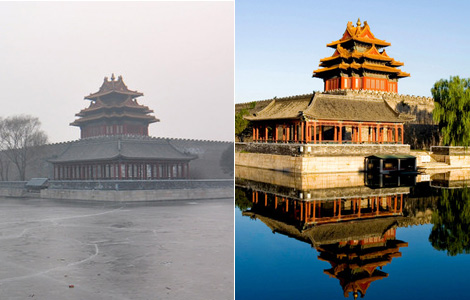Chinese reform 'encouraging': World Bank chief
Updated: 2013-12-11 14:28
(Xinhua)
|
|||||||||||
WASHINGTON - The recent reform measures announced by the Chinese government are encouraging, and the US Federal Reserve needs to exit the current massive asset buying program in a smooth and gradual manner to give developing countries time to adjust, the World Bank Group President Jim Yong Kim said Tuesday.
He is very encouraged by the higher economic growth pace in the third quarter in China, and "we are extremely encouraged" by the recent reform moves of the Chinese government, Kim told a small group of reporters on the sidelines of an event hosted by the Economic Club of Washington, D.C..
Chinese economic growth rate rebounded to 7.8 percent in the third quarter of this year, from 7.5 percent in the second quarter, governmental data showed.
The Chinese government is "extremely serious" about the reform agenda it set out including "the commitment to let market forces determine the distribution of resources, the opening of Shanghai free trade zone" and reform of hukou (household registration) system, Kim noted.
"Everything that I have seen coming out of the government in terms of its commitment to the reform agenda is very encouraging, and the fact that the growth number was also up is further encouragement," he said in response to questions from Xinhua.
There are still "many downside risks" for the global economy, and the world is waiting to watch what happens with the US resolution of the budget situation and hopes it will move in a positive direction, said the World Bank chief.
A 29-member bipartisan congressional panel is discussing a budget plan for the federal government and ongoing spending cuts. The negotiations began after a 16-day partial government shutdown starting on October 1, and the panel has a December 13 deadline to produce a plan.
The growth and job numbers in the United States are very encouraging, said Kim, adding that "as long as the Congress can resolve this budget issue, we think the growth prospects for the United States are quite good."
US Fed Chairman Ben Bernanke and the Fed chair nominee Janet Yellen are fully aware of the impact of US economy and monetary policies on other countries including their borrowing costs, Kim said.
"If there is tapering in the unconventional monetary policy, it means there is growth in the United States, and growth in the United States is positive for the global economy," he contended.
If the tapering is "communicated effectively" and gradual, then the impact of a growing US economy will help offset the impact of rising interest rates, argued Kim, adding that what all hope for is "an exit from quantitative easing that will be smooth and happen over a period of time so that developing countries can adjust."
Since the onset of the financial crisis, the Fed has kept its short-term interest rate at the historically low level and completed two rounds of quantitative easing programs. It is now purchasing longer-term government debt and mortgage-backed securities at a pace of $85 billion per month, dubbed as the QE3. Top Fed officials next week will discuss when to start scaling back, or tapering, the QE3.
Related Stories
Road map for financial reform 2013-12-11 07:20
Reform 'means slightly slower growth' 2013-12-11 00:09
Chance to roll out reforms 2013-12-10 01:14
'Significant movement' is nearing in reform 2013-12-10 00:59
Reforms to improve access to affordable housing 2013-12-10 00:47
China trials new interest rate reform 2013-12-09 18:37
Today's Top News
US Congress negotiators reach budget deal
Conference maps nation's path for 2014
Chinese say their goodbyes to Mandela
Kuka opens Shanghai factory
Internet can 'help curb corruption'
Doors slam shut on laojiao
S Africa holds memorial service for Mandela
Chang'e-3 probe closer to the moon
Hot Topics
Lunar probe , China growth forecasts, Emission rules get tougher, China seen through 'colored lens', International board,
Editor's Picks

|

|

|

|

|

|





